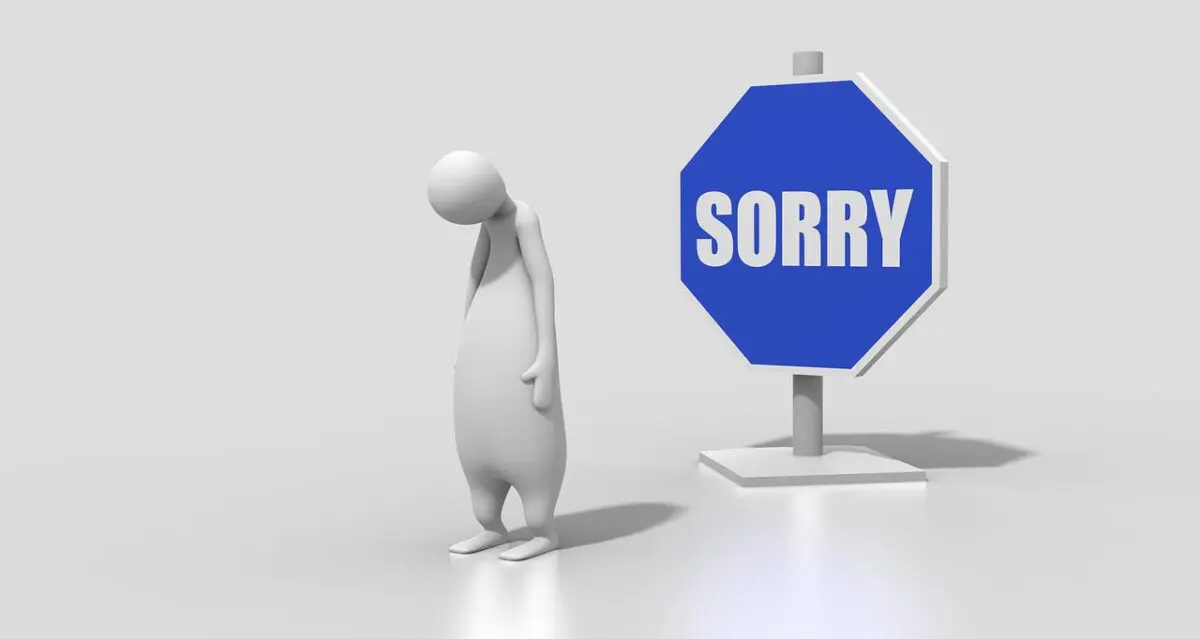While there are many ways to not say sorry or not to apologize, I found four totally disadvised.
Fast & Easy To Put In Practice!
Not Owning the Mistake: “I am sorry, but it wasn’t my fault.”
Placing blame or attempting to excuse your behaviour can weaken your apology’s impact and undermine your credibility. Using excuses to justify your actions or faults will only serve to exacerbate any sentiments of rejection, anger, or grief that others may be experiencing. I think it’s crucial to own up to your mistakes. Recognize what you should have done differently and vow to change if this happens again.
Not Carefully Considering Your Words: “I apologize, but it is just part of the environment we live in.”
Consider how the receiver will interpret what you’re saying and how you say it before rushing into an apology. What we say while acknowledging a mistake can have an impact on the relationship’s future trust. If we don’t choose our words wisely, we risk adding insult to injury and jeopardizing our relationship even more.
Leaving Out the Specifics: “Sorry for ‘whatever’ happened to you.”
Before you make an apology, make sure you know what you’re apologizing for. Don’t apologize until you’ve thoroughly considered all of the facts. The person you’re apologizing to needs to know what you’re sorry for. It allows you to provide more information about the cause, acknowledge ownership, and employ a meaning that is meaningful to you.
Making it Impersonal. “Sorry ?”
How the apology is delivered is just as significant as the message itself. Recognize when a mistake necessitates a face-to-face conversation that cannot be accomplished over text. Call them if you can’t meet in person. Allow the individual who has offended you to hear your honesty.
Therefore, It’s critical to practice making appropriate apologies and to recognize that the other person has to be satisfied at the time of the apology. You’re supposed to feel good about yourself by making other people happy. Let’s dispel the misconception that apologizing is a method to get away with our errors.
We must also realize that apologizing is often not enough, so don’t be shocked that you have to prove your good faith. That’s the way things work in life; a clear conscience and respected agreements.
It is also critical to understand that apologizing does not imply that you are to blame for your error. Apologizing is admitting that you made a mistake, that someone was wounded, that something was done incorrectly, or that something was overlooked. It’s simply the reality of the situation.
That’s why it feels wonderful to express it, and that’s why the person or thing who was injured feels gratified, perhaps disappointed, but ultimately happy to have shown your courage.
Because, yes, I believe that apologizing is a sign of bravery and, without a doubt, greatness.
Be kind!







